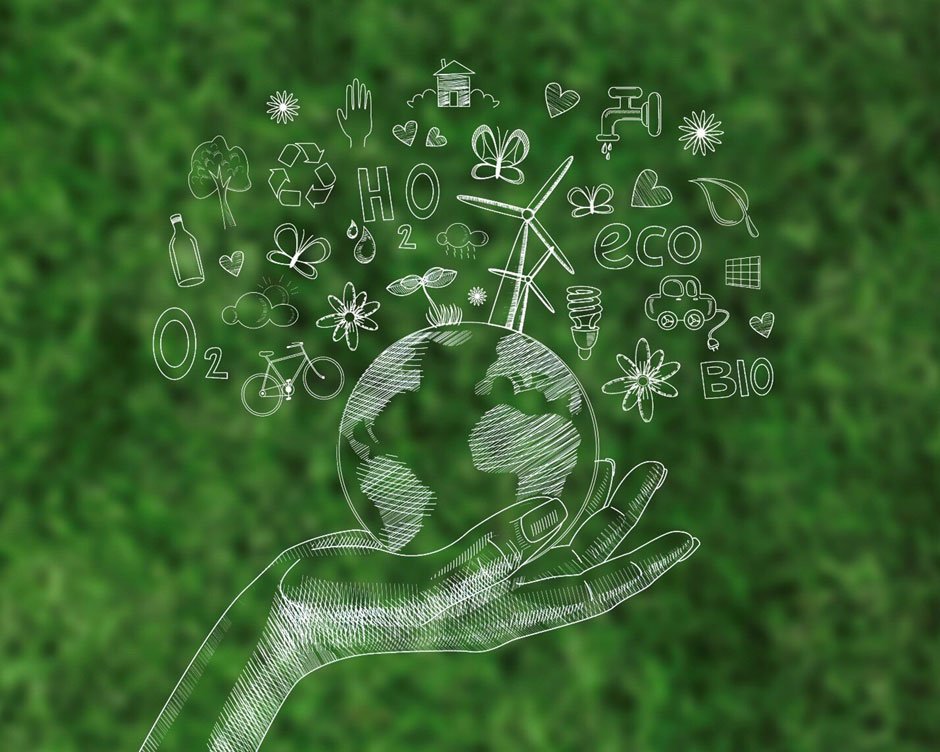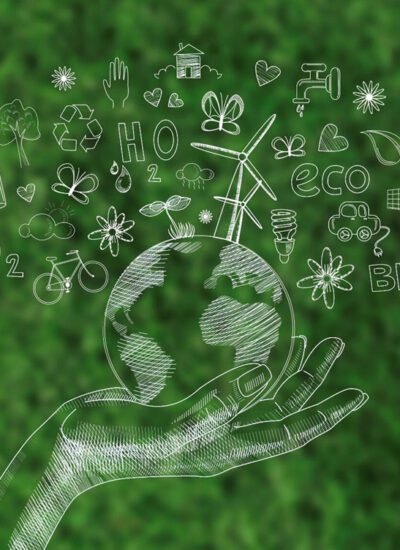 Going green isn’t about making huge, overwhelming lifestyle changes overnight. It’s about the small things – tiny daily choices that add up over time. The habits that seem insignificant at first, like turning off lights or skipping plastic straws, actually make a real difference when done consistently. The best part? Most of them don’t require extra effort, just a shift in awareness. Also, once you get into the habit of making eco-friendly choices, they start feeling automatic. Here’s how this works.
Going green isn’t about making huge, overwhelming lifestyle changes overnight. It’s about the small things – tiny daily choices that add up over time. The habits that seem insignificant at first, like turning off lights or skipping plastic straws, actually make a real difference when done consistently. The best part? Most of them don’t require extra effort, just a shift in awareness. Also, once you get into the habit of making eco-friendly choices, they start feeling automatic. Here’s how this works.
Educate yourself
First, you must understand what and why you should go green. Without knowing what sustainability actually means, it’s easy to make surface-level changes that don’t have much impact. When you learn the basics (things like carbon footprints, waste reduction, and energy conservation), you start making choices that genuinely matter. The “why” is just as important. When you see how climate change affects everything from food prices to natural disasters, it stops being an abstract issue. It’s real, and that knowledge makes it harder to ignore.
Why will it help you with the motivation? You might already know that plastic is bad and saving energy is good, but without a strong reason to care, it’s easy to fall back into old habits. When you connect sustainability to something personal (like saving money on your electricity bill or protecting the parks you love), it becomes much easier to stick with it. Also, once you realize how small actions add up, you start seeing change as something within your control, not just something for governments or corporations to handle.
The sooner you start with environmental education, the better, so you should start with kids as soon as possible. Sustainability is a mindset; like any good habit, it sticks better when introduced early. Teaching kids why we sort trash, turn off lights, and choose reusable items helps them develop these habits naturally. Also, kids tend to influence adults—when a child reminds a parent to bring a reusable bag or recycle properly, it reinforces those habits across generations.
Conserve water at home
Turning off the tap while brushing your teeth sounds like such a minor thing, but if you think about it, that’s a lot of wasted water for something that doesn’t need it. Most people leave the water running out of habit, not necessity. Two minutes of brushing with the tap running can waste gallons of water daily. Multiply that by weeks, months, and years, and you start to realize how much of a difference just breaking that habit can make.
Fixing leaks as soon as you notice them is another small habit preventing massive waste of resources. A slow-dripping faucet might not seem like a big deal, but over time, it adds up to hundreds of gallons lost for no reason. Also, it’s not just about the water – it’s about your water bill, too. Letting leaks go unchecked means you’re literally paying for water you aren’t even using. A quick fix now saves both money and waste in the long run.
Installing water-efficient appliances and fixtures is an easy way to make a lasting impact without any extra effort. Low-flow showerheads, water-saving dishwashers, and dual-flush toilets all use significantly less water than older models without sacrificing performance. Many of these upgrades come with rebates or incentives, so you’re not just saving water – you’re also getting rewarded for it. And once they’re installed, you don’t have to think about them again. Conservation happens automatically.
Adopt energy-saving habits
Switching off lights and appliances when not in use is one of the easiest ways to reduce energy waste, yet so many people forget to do it. Leaving lights on in empty rooms or keeping devices running overnight doesn’t seem like a big deal, but the energy adds up. Even something as simple as flipping a switch before leaving a room can make a noticeable difference in yoru electricity bill and your overall energy consumption.
Unplugging devices that drain energy even when off is another overlooked habit that makes a big impact. Many appliances and electronics keep drawing power even when they’re not in use – things like phone chargers, TVs, and coffee makers. However, if you make it a habit to unplug them or use a power strip that you can switch off, you cut that wasted energy instantly. Also, it helps protect yoru devices from power surges, so it’s a win-win.
Using LED bulbs instead of incandescent ones is one of those small upgrades that pays for itself over time. LEDs use a fraction of the energy of traditional bulbs and last years longer, which means fewer replacements and lower energy bills. Moreover, they come in different color tones now, so if you’ve been avoiding them because of the old “harsh white light” stereotype, it’s time to reconsider. They save money, last longer, and use less power – there’s really no downside.
Support sustainable brands
Checking for eco-friendly certifications before buying products is a simple habit that helps you put yoru money where your values are. Companies love throwing around terms like “natural” and “green,” but those words don’t mean much without real certifications. Looking for labels like Fair Trade, USDA Organic, or FSC-certified words ensures that what you’re buying meets actual sustainability standards. Also, supporting certified products conveys to companies that consumers care about ethical production.
Another way to make a real impact without much effort is to choose companies that prioritize ethical sourcing and packaging. Brands that use recycled materials, minimize plastic, and focus on sustainable farming or manufacturing methods are making a difference, and YouTube’s buying choices encourage more companies to follow suit.
Moreover, with more transparency in supply chains than ever, it’s easier to research which companies are truly committed to sustainability versus those just riding the marketing wave.
This dentist who does quality dental implants in Newmarket ON adds that this movement is increasingly relevant in the dental industry, where consumers can choose bamboo toothbrushes instead of plastic ones, or select toothpaste packaged in recyclable tubes or glass jars. Supporting dental brands that responsibly source ingredients and offer zero-waste options minimizes environmental impact from daily oral care routines.
Wrap up
The truth is, sustainability isn’t about making a grand statement – it’s about making better choices, one step at a time. You don’t have to overhaul your entire lifestyle to make a difference. Small things, like being mindful of water use or supporting ethical brands, already put you on the right path. Also, the more you integrate these habits into your daily routine, the easier they become.




Leave a Reply